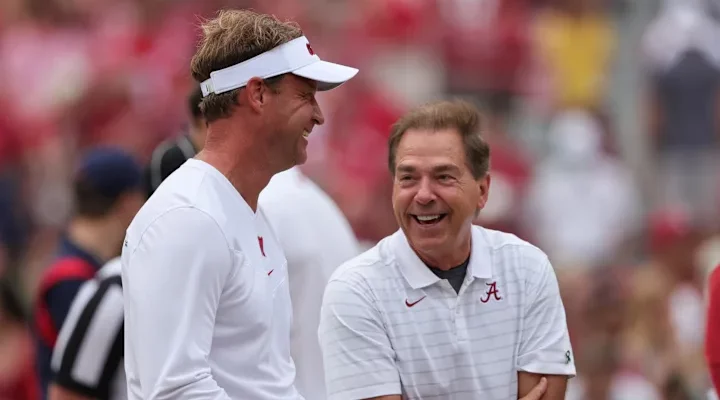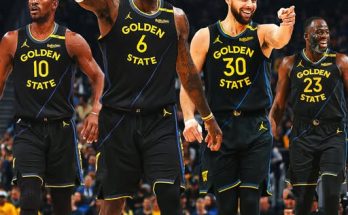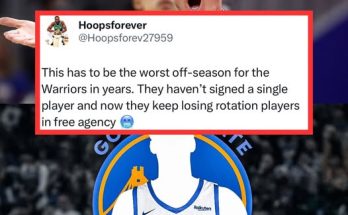Lane Kiffin has never been one to mince words, especially when it comes to football’s biggest names and narratives. So when the topic of Nick Saban’s potential return to coaching surfaced, the Ole Miss head coach didn’t shy away from the speculation. Instead, he leaned in with a mix of admiration, caution, and genuine intrigue. In a recent interview, Kiffin offered his thoughts on what it might mean if the legendary coach were to return to the sidelines, months after announcing his retirement from Alabama. And in typical Kiffin fashion, his words have ignited discussion across the college football world.
It’s no secret that Kiffin and Saban have a complicated but deeply rooted history. Kiffin served as Saban’s offensive coordinator at Alabama from 2014 to 2016, helping the Crimson Tide modernize its offensive philosophy during a pivotal time in the program’s dynasty. Though their partnership ended just days before the 2017 national championship game—an abrupt and much-publicized split—it’s clear that mutual respect underlies their football relationship. That respect was evident in how Kiffin responded to the idea of Saban returning to the sport he dominated for nearly two decades.
“Do I think Coach Saban could come back?” Kiffin said. “Sure. If he wanted to, I don’t think there’s a single program that wouldn’t at least take a call. I mean, we’re talking about the greatest to ever do it. He’s not just a coach, he’s the architect of an era.”
Kiffin’s comments come at a time when college football is undergoing seismic shifts. The transfer portal, NIL (name, image, and likeness) deals, and realignment of conferences have left the sport in a state of near-constant evolution. Saban retired just as the 2024 season approached, citing a desire to spend more time with family and expressing concern about the changing landscape of the sport. Many speculated at the time that his departure was final, a closing chapter to a historic coaching career. But if Kiffin’s sentiments reflect broader views among his coaching peers, then it seems the door might not be entirely closed.
“Sometimes I think people forget how competitive he is,” Kiffin continued. “He’s not just gonna sit on a beach somewhere and be satisfied. He’s wired differently. That man lives for the grind, for the details, for the structure of a football program. I wouldn’t bet against him showing up again somewhere. Maybe not tomorrow, but sometime.”
That possibility has sparked an array of theories across fan bases and media circles alike. Would Saban consider the NFL, where he had a brief and unfulfilling stint with the Miami Dolphins in the mid-2000s? Could he take on an advisory or consultant role at a university where he wouldn’t have to handle the full-time demands of a head coach? Or, more provocatively, would a struggling blue-blood program dare to woo him out of retirement with promises of control and resources?
Kiffin, for his part, believes that any return would have to be on Saban’s terms—and that very few places would be able to meet that standard.
“You can’t just plug him into any situation,” Kiffin said. “He’s a program builder, not a patch job guy. If he ever came back, it would be because he sees something special—either in the challenge, the players, or the institution itself. And let’s be honest, he’d want full control. And he’s earned that.”
The respect that Kiffin shows for Saban goes beyond professional courtesy. At multiple points in the interview, he alluded to the profound impact the legendary coach had on his own career. After a tumultuous head coaching tenure with the Oakland Raiders and controversial exits from Tennessee and USC, Kiffin’s stint under Saban was widely viewed as a rehabilitation of both his image and his approach to the game. He credits Saban with teaching him how to manage every aspect of a program with intensity and precision.
“I learned more in those three years than I did in the ten before it,” Kiffin said. “Everything from personnel management to situational awareness to just how to lead a building—Coach Saban sets the standard. You never forget that.”
What makes the timing of this speculation so fascinating is the broader context of Alabama’s current state. Kalen DeBoer, who replaced Saban after a stellar run at Washington, has inherited one of the most pressurized jobs in the country. Despite his credentials, DeBoer is tasked with keeping the Crimson Tide not just relevant, but dominant—an impossible expectation when following in the footsteps of a man who won six national championships at the school. If Alabama stumbles early in the season or shows signs of regression, fans and boosters alike might start whispering about the “what-ifs.” And as Kiffin pointed out, those whispers can sometimes lead to action.
“I don’t think Alabama is the kind of place that reacts impulsively,” he said. “But if things don’t go well early, there’s gonna be pressure. There always is. And if Coach Saban’s just sitting there, looking like he’s still got the fire? You never know.”
It’s not just Alabama fans who are listening closely to Kiffin’s words. Across the SEC, and college football more broadly, coaches are watching and wondering. The return of Nick Saban would change the entire landscape—again. Programs that had started to breathe easier knowing that the Saban juggernaut was finally over would suddenly have to recalibrate. Recruiting, scheduling, and even staffing would be impacted by his presence, no matter where he ended up.
“I’m not saying he’s coming back tomorrow,” Kiffin clarified. “I’m just saying you don’t count out people like that. You don’t count out Michael Jordan. You don’t count out Tom Brady. And you sure as hell don’t count out Nick Saban.”
Whether Saban actually harbors any desire to return is still purely speculative. By all public accounts, he has enjoyed the start of his retirement, making appearances on television, playing golf, and spending time with his family. Yet, many who know him personally suggest that retirement might not satisfy his relentless competitive spirit for long. Kiffin’s comments appear to validate that belief, portraying a man who, while at rest, may still be deeply immersed in the chessboard of football.
“Even when I left Alabama, I never stopped trying to figure out what made him tick,” Kiffin said. “He’s obsessed with getting better, with competing at the highest level. It’s not something you just turn off.”
So now the question hangs in the air, unresolved but tantalizing: Could Nick Saban actually return to football? Lane Kiffin’s perspective doesn’t offer certainty, but it does add weight to the possibility. Coming from someone who worked shoulder-to-shoulder with Saban and understands both the demands of the job and the mentality required to excel at it, Kiffin’s words resonate far beyond idle speculation. They feel like a warning. They feel like a prediction. Or perhaps they’re simply a reflection of how deeply Saban’s legacy has shaped the sport—so much so that even in retirement, his presence still looms large over every locker room, every playbook, every headline.
Whether or not that presence becomes literal once again is anyone’s guess. But if Kiffin is right, the book of Nick Saban might not be closed just yet. It may be resting. Waiting. Preparing for one last drive down the field.



